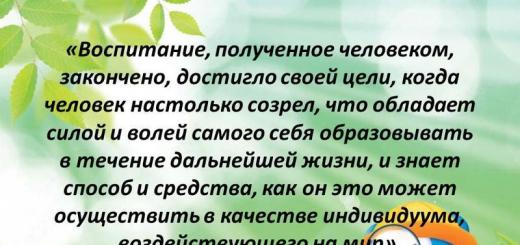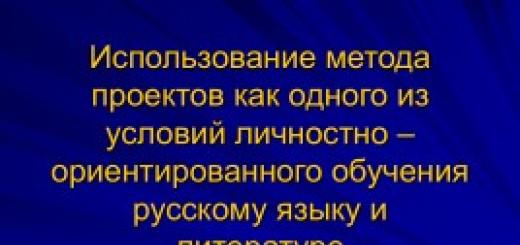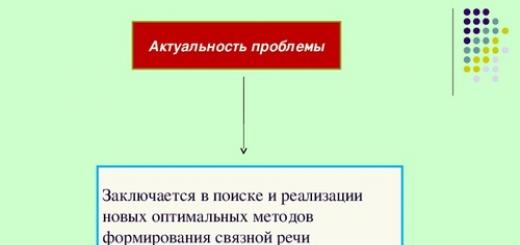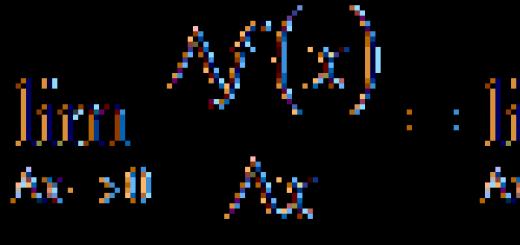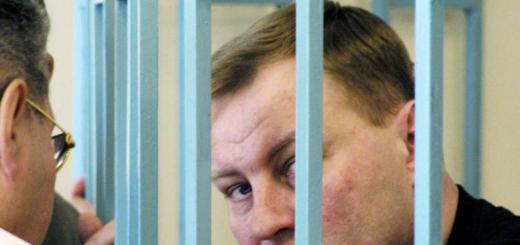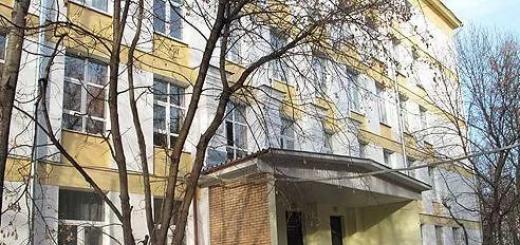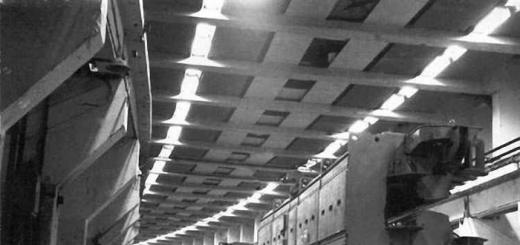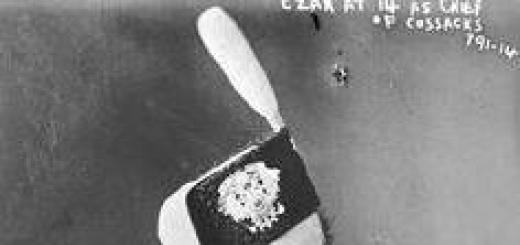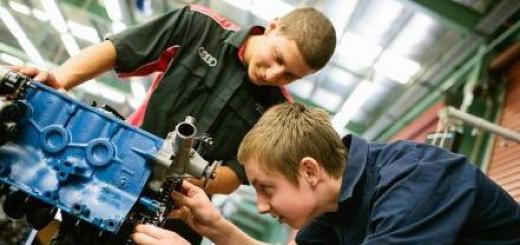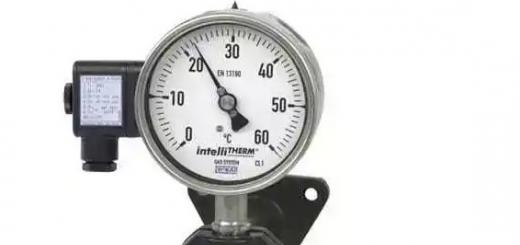“METHODOLOGICAL CULTURE OF A TEACHER AS A FACTOR OF HIS PROFESSIONAL DEVELOPMENT” Natalya Valentinovna Pristavakina, teacher of MBDOU “Kindergarten 31” Ruzsky district, Oreshki village State educational institution of additional professional education (advanced training) for specialists of the Moscow region Pedagogical Academy of Postgraduate Education (GOI PEDAGOGICAL AYA ACADEMY)
“The education received by a person is complete, has reached its goal, when a person is so mature that he has the power and will to shape himself during the rest of his life, and knows the way and means how he can do this as an individual influencing the world.” A. Disterweg.

The goal is to create a personal development environment that would promote the professional and personal development of teachers, provide conditions for mental health, emotional well-being and internal satisfaction of teachers with their activities and effectively influence the development of all subjects of pedagogical activity

Objectives: improving teaching skills and enriching teaching experience; influence on the professional development of a teacher. determine the components of professional competence and a list of basic professional competencies for teachers of preschool educational institutions to increase the level of mastery of program content; guaranteeing the quality of skills acquired by preschool students; improving the quality of education in general, improving the image among preschool educational institutions.

The personality of a teacher can become a factor in the formation of a student’s personality only if the teacher is professionally competent and a free member of the teaching community. That is why scientific and methodological work organized at preschool educational institutions is aimed at professional development, acquiring and consolidating the status of a teacher, solving his professional and personal problems, and his successful self-realization.

The main pedagogical values of a teacher in a preschool educational institution are human: the child as the main pedagogical value and a teacher capable of his development, cooperation with him, social protection of his personality, help and support of his individuality, creative potential; -spiritual: the cumulative pedagogical experience of humanity, reflected in pedagogical theories and methods of pedagogical thinking, aimed at shaping the child’s personality; -practical: methods of practical pedagogical activity, proven by the practice of the educational system, pedagogical technologies that include students in various types of activities; -personal pedagogical abilities, individual characteristics of the teacher as a subject of pedagogical culture, the pedagogical process and his own life creativity, contributing to the creation of personal and humane interaction.

The basis of the professional activity of a preschool teacher is Knowledge of the age-related and individual psychological and pedagogical characteristics of the development of preschool children. Taking them into account, the teacher plans further work: organizes play activities, independent, educational, constructive, visual, etc.

A preschool teacher must have knowledge: methodological (knowledge of the general principles of studying pedagogical phenomena, patterns of socialization of upbringing and teaching); theoretical (knowledge of the goals, principles, content, methods and forms of pedagogical activity and the patterns of formation and development of the personality of a preschool child); methodological (knowledge of methods of raising and teaching preschool children); technological (knowledge of ways and techniques of raising and teaching preschool children).

A creative educator is a professional who is capable of creating qualitatively new material and spiritual values in the pedagogical process. He skillfully combines in his pedagogical activities the stereotypical, which gives the process stability, stability, controllability, invariance, with the innovative, which produces variability, freedom, variability.


The educational function is aimed at the conscious mastery by preschool teachers of didactic theory, a system of professional knowledge, abilities, skills, and social experience in the interests of the individual and society. This function is also aimed at satisfying information knowledge, because Currently, preschool institutions are called educational institutions. Theoretical and practical aspects of the implementation of the educational function of professional pedagogical culture ensure mastery of the content, organizational and methodological foundations for the upbringing and training of preschool children in preschool educational institutions

The educational function of the professional and pedagogical culture of a preschool teacher reflects the area of educational activity. The teacher, on the basis of psychological, pedagogical and special knowledge, cultivates beliefs, motives, values, and norms of behavior in relation to surrounding people and the natural environment. This function is associated with the development of personal spirituality and is aimed not only at the teacher, but also at the child.

The developmental function of professional pedagogical culture is that the improvement and activation of didactic knowledge and skills of educators occurs simultaneously with the development of professional thinking, memory and speech, pedagogical abilities, which allow the use and application of a more effective and creative approach in creating conditions for the harmonious development of children , organization of the educational process in a preschool educational institution.

The normative function of the professional and pedagogical culture of a preschool teacher regulates the teacher’s activities in the system. Knowledge of the norms of pedagogical activity gives the educator confidence in the correctness of his actions. Pedagogical norms, performing the function of values, help preschool teachers choose the most optimal ways of activity, establish ideals and professional priorities. The norms of pedagogical activity are aimed at resolving contradictions that arise in the process of interaction between the teacher and children, colleagues, parents and administration, at ensuring their cooperation and achieving joint actions in the upbringing of preschool children.

We have identified the communicative function based on the following idea: the development of a child in preschool age develops mainly in the course of communication with adults. Not being able to think critically, children of this age imitate everything they see and hear in the environment, but most of all those people who are directly connected with them, towards whom the children have developed a positive attitude. Such a close person with whom a child is directly connected in kindergarten is the teacher. He must master communication skills with children of different ages and various psychological and pedagogical features of development.

The information function of professional pedagogical culture is associated with all its functional components. The teacher must master the system of modern psychological and pedagogical knowledge, the history of its development, the methodology of scientific knowledge, etc. A preschool teacher must be oriented in the diverse flow of psychological, pedagogical and methodological information, be able to use various media, and master the means of information technology; be able to work with information using these means to meet personal and social needs.

The coordinating function of professional pedagogical culture lies in the variability of the content of the educational process and the selection of technologies. In rural preschool institutions, teachers who graduated from pedagogical schools or pedagogical classes work; there are also teachers who do not have special pedagogical education, and therefore do not have a perfect command of preschool education methods. In urban preschool institutions, there are teachers who have special pedagogical education, but due to socio-economic changes in the country, recently teachers who do not have special preschool education, but have knowledge in one field of science, are hired as educators. Consequently, this function of the professional and pedagogical culture of a preschool teacher is the basis for improving his further professional activities.

Reflexive function According to the humanitarian-cultural orientation in the interpretation of reflection, it is interpreted as “rethinking and restructuring by the subject of the content of his experience, which reflect problem-conflict situations and give rise to his effective attitude as a holistic “I” to his own behavior and communication, to the activities carried out, its cooperators, socio-cultural and material-ecological environment.”

Diagnostic function A preschool teacher, carrying out the educational process, must be able to solve complex professional problems at a high level, comprehensively and creatively, namely: build diagnostic goals, predict the results of diagnostic activities, select (develop) diagnostic tools; together with other teaching staff (psychologists, music worker, speech therapist) carry out competent psychological and pedagogical diagnostics, analyze and interpret diagnostic data, design and implement the educational process based on system diagnostics.

The professional and pedagogical culture of a teacher of a preschool educational institution is understood as an integral quality of personality, represented by the unity of value, cognitive, innovative, technological, personal and creative components, which in their interaction ensure productive pedagogical activity and creative self-realization of a teacher of a preschool educational institution.

Scenario plan for preparing and holding a pedagogical council. Preparation for a teachers' council. Creation of an initiative group for holding a teachers' council. Studying scientific and methodological literature on this issue. Visiting routine moments of all age groups in order to view the educational process. Questionnaire “Who am I: an optimist or a pessimist?”

Teachers' council plan Game "Qualities" Responsible: Deputy head for methodological work Professional competence of teaching staff (working with theoretical concepts). Responsible: Deputy Head for Methodological Work Business Game Responsible: Deputy Head for Methodological Work Creative Game Responsible: Senior Educator Results of visiting routine moments of all age groups in order to view the educational process. Responsible: Commission Results of the survey. Responsible: educational psychologist

Progress of the teachers' council Introduction to the topic of the teachers' council. Game “Qualities” Each of the teachers needs to choose three qualities that are most manifested in him, believing that those around him also see these qualities in him. It is suggested to write each quality on a separate piece of paper. Next, the teachers are divided into 2 groups and sit in a circle. All the folded pieces of paper are placed in a bag, each group has its own. In each group, the leader invites one of the participants to take a quality from the bag without looking, read it and give it to the person for whom it is typical. This continues until there is not a single piece of paper left in the bag. As a result, each teacher receives a different number of pieces of paper, and, therefore, qualities.

Working with theoretical concepts on the topic of teachers' council Professional competence of a teacher is a multifactorial phenomenon that includes a system of theoretical knowledge of the teacher and ways of applying it in specific pedagogical situations, the value orientations of the teacher, as well as integrative indicators of his culture (speech, communication style, attitude towards himself and their activities, related fields of knowledge, etc.). Three criteria: 1. Mastery of modern pedagogical technologies and their application in professional activities. 2. Willingness to solve professional subject problems. 3. The ability to control one’s activities in accordance with accepted rules and regulations.

A teacher of the 21st century is: A harmoniously developed, internally rich personality, striving for spiritual, professional, general cultural and physical perfection; Able to select the most effective methods, means and technologies of training and education for the implementation of assigned tasks; Able to organize reflective activities; Possessing a high degree of professional competence, a teacher must constantly improve his knowledge and skills, engage in self-education, and have versatility of interests.

Conditions for professional growth Self-educational work Reading methodological, pedagogical and subject literature Review on the Internet Attending seminars, conferences, lessons of colleagues. Discussions, meetings, exchange of experience with colleagues. Systematic completion of advanced training courses. Conducting open sessions for peer review. Study of information and computer technologies. Communication with colleagues in the preschool educational institution, the city and on the Internet. Participation in competitions on the Internet. Posting your developments on websites on the Internet.

Business game Purpose of the game: Developing a common view in the group on the personal and professional qualities of a teacher and developing a model of professional competence based on them. Objective: To develop a model of professional competence of a teacher. Equipment: Whatman paper, markers, felt-tip pens. User group: preschool teachers.

A business game for teachers consists of several parts: the practical part – drawing up a model of a teacher’s professional competence with its justification; practical part - designing a model of professional competence of a teacher with its justification; theoretical part; theoretical part; demonstration part; demonstration part; final part. final part.

Organizational stage: Participants are divided into two groups. The group chooses a secretary to record all incoming proposals, a time keeper to control time, and a speaker to defend his model. Working time is 3-5 minutes. “Brainstorming Stage” The secretary writes down any opinions and suggestions, even the most ridiculous and strange ones, coming from the group members. After a group discussion, the 10 most significant and important qualities that make up the professional competence of a teacher are selected, five of them are personal qualities, five are professional. Operating time – minutes.

Design stage A group model of the teacher’s professional competence is drawn up on whatman paper: it is necessary to depict a professionally competent teacher on one half, and write down his ten most significant qualities next to it. Operating time – 15 minutes.

Demonstration stage Presentation of a model of a teacher’s professional competence, justification of the presented professional and personal qualities. Operating time – 10 minutes. After the presentation, each group member chooses the three most important, in his opinion, qualities from the ten presented.


Theoretical part Professional competence is the ability of a teacher to solve professional problems and tasks in the conditions of professional activity. Competence is a personal characteristic, and competence is a set of specific professional qualities. Professional competence is the sum of knowledge and skills that determines the effectiveness and efficiency of work; it is a combination of personal and professional qualities.

The main components of the professional competence of a preschool teacher include: Intellectual and pedagogical competence - the ability to apply acquired knowledge, experience in professional activities for effective teaching and education, the teacher’s ability to innovative activities; Communicative competence is a significant professional quality, including speech skills, listening skills, extraversion, and empathy. Information competence is the amount of information a teacher has about himself, students, parents, and colleagues. Regulatory competence is the ability of a teacher to manage his behavior, control his emotions, the ability to reflect, and stress resistance.



Solutions: Consider increasing the professional competence of teachers as a necessary condition for the development of preschool educational institutions. Duration: permanent. Responsible: all teachers. Continue the practice of mutual visits to different educational areas that do not involve control functions, organize effective professional communication and enable teachers to open up to a greater extent, show their potential, and find answers to questions that interest them. Duration: permanent. Responsible: all teachers. At the end of the school year, educators provide an analysis of self-education for the school year. Responsible: all teachers. Continue the work of in-garden seminars and master classes aimed at the formation and development of key competencies of the teacher. Duration: permanent. Responsible: Deputy Director for Methodological Work, Senior Teacher.

There are many different professions in the world And each has its own charm But there is none more noble, more necessary and more wonderful than the one I work with! The world of childhood is sweet and subtle, like the floating sound of a flute. As long as my child laughs at me, I know that I am not living in vain. Friends say: “There are quieter fields.” But I will never give up. I love these cute kids like I love my own children... And every day, as if at a premiere, I enter a quiet kindergarten. I’m not coming here for a career. Every child here is happy to see me. To be in the thick of children's perceptions... And so on throughout the years - My destiny is that I am a teacher! There is no better life on earth.


To use presentation previews, create a Google account and log in to it: https://accounts.google.com
Slide captions:
Methodological culture of the teacher. Silyutina Elina Vladimirovna, Music teacher of Municipal Budget Educational Institution No. 35 of Kamensk-Uralsky.
Subject. Dissemination of a teacher’s own experience in the field of improving the quality of education and upbringing as an indicator of the level of development of a teacher’s methodological culture.
The methodological culture of the teacher includes the following. 1. Design and construction of the educational process. 2. Awareness, formulation and creative solution of pedagogical problems. 3. Methodological reflection.
Main criterion. The main criterion for the knowledge and methodology of a teacher’s methodological culture is the teacher’s use of scientific and pedagogical knowledge to improve his work using analysis and other research methods in his practical work.
Pedagogical principle. 1. The goal set by society for training and education. 2. Certain conditions in which pedagogical action takes place. 3. Age characteristics of students. 4. Teaching methods, i.e. ways of constructing educational and educational situations. 5. The subject that is the object of study. 6. Logic and content of science representing a given object and subject.
Levels of methodological culture. 1) pedagogical; 2) general scientific; 3) philosophical.
V.A. Kachalov “Quality in education is no longer only the results of learning, but also the system, model, organization and procedures that ensure that students receive comprehensive personal and social development, giving them the opportunity to satisfy their needs and allowing them to contribute to the progress and improvement of society as a whole"
The quality of education is a complex indicator: the relationship between the goal and the outcome of learning; ensuring the degree of satisfaction of the expectations of participants in the educational process from the educational services provided; a certain level of knowledge, skills, competencies and competencies, mental, physical and moral development of the individual;
Levels of experience dissemination. School - school education, teacher councils, seminars, publications on the school website. Municipal - GMO, pedagogical readings, seminars, master class. Regional – seminars, conferences, publications. All-Russian - publications in magazines, Internet competitions.
Thank you for attention!
On the topic: methodological developments, presentations and notes
Methodological culture of the teacher. Presentation.
This material, which reveals the concept of “methodological culture of a teacher,” can be used as part of an in-house training program for teaching staff. ...
Presentation for the report on the topic "Creativity - the methodological position of the teacher" by teacher O.R. Loginova. at RMO...
Scenario plan of the pedagogical council "Methodological culture of a teacher as a factor of his professional development", presentation for the work.
The work presents complete material for conducting the pedagogical council. When holding a teachers' meeting, a variety of modern methods and techniques were used: a business game, brainstorming, questionnaires...
The concept of the methodology of pedagogical science Methodology (from the Greek methodos - the path of research or knowledge, theory, teaching and logos - word, concept): 1) a system of principles and methods of organizing and constructing theoretical and practical activities; 2) the doctrine of the scientific method of knowledge; 3) a set of methods used in any science
The concept of the methodology of pedagogical science In a broad sense, it is interpreted as a system of principles and methods of constructing theoretical and practical activities, as well as the doctrine of this system. According to another, also broad, definition, this is the doctrine of the method of scientific knowledge and transformation of the world

The concept of the methodology of pedagogical science In modern literature, we are talking primarily about the methodology of scientific knowledge, which is understood as the doctrine of the principles of construction, forms and methods of scientific research activity. In pedagogy, methodology is defined as the doctrine of the principles, methods, forms and procedures of knowledge, scientific pedagogical activity

The concept of the methodology of pedagogical science Methodology is not only and not so much a system of knowledge as a field of activity for the production of methodological knowledge. Thus, methodology is not only “teaching” as a body of knowledge, but also a field of cognitive activity

The concept of the methodology of pedagogical science A clear definition was given by Mikhail Aleksandrovich Danilov: “The methodology of pedagogy is a system of knowledge about the foundations and structure of pedagogical theory, the principles of the approach and methods of obtaining knowledge that reflect... pedagogical reality...”

The concept of the methodology of pedagogical science But since it does not reflect the activity aspect of the methodology, it should be added: “... as well as a system of activities for obtaining such knowledge and justifying programs, logic and methods, assessing the quality of special scientific pedagogical research” (V.V. . Kraevsky)




Levels of scientific research in education Levels of scientific research in education Scientific research in education is a systematic cognitive activity aimed at obtaining new knowledge about educational phenomena and processes. Scientific research is characterized by: objectivity, reproducibility, evidence, accuracy. According to the method of obtaining knowledge and the nature of information, two levels are distinguished: empirical and theoretical. The results of scientific research are presented in the form of: articles, reports, dissertations for the degree of master, candidate, doctor of science

Principles of scientific research Principles of scientific research Purposefulness Objectivity Applied orientation Systematicity Integrity Dynamism These principles are based on the laws of cognitive activity, scientific research, and the specifics of educational practice


Main characteristics of scientific research Empirical base Stages of research Scientific novelty Provisions submitted for defense Theoretical significance Practical significance Reliability and validity Approbation and implementation of research results in practice Structure of the work

Types of scientific research in education Types of scientific research in education The structure of pedagogical science is determined by the nomenclature of scientific specialties, which is periodically revised and approved by the government. This nomenclature is the basis for conferring academic degrees and titles, planning scientific research, and opening dissertation councils

Nomenclature of scientific specialties in pedagogical sciences – General pedagogy, history of pedagogy and education – Theory and methodology of teaching and upbringing (by area and level of education) – Correctional pedagogy – Theory and methodology of physical education, sports training, recreational and adaptive physical culture – Theory, methodology and organization of socio-cultural activities – Theory and methodology of preschool education – Theory and methodology of vocational education

Methodological culture of the researcher It is necessary to distinguish between the concepts of “methodological culture of a scientist” and “methodological culture of a teacher”. The main criteria for a teacher’s methodological culture: - development of a concept for one’s professional activities; - awareness of the role of methodology in this process; - creativity and consistency of teaching activities.

The criteria for a scientist’s methodological culture are belonging to one of the scientific schools and deep mastery of its inherent research apparatus; - orientation in the methodological approaches, concepts and theories existing in pedagogical science; - correct use of pedagogical terminology; - ability to identify and justify the relevance of research problems; -

The criteria for the methodological culture of a scientist are predictive thinking; the ability to formulate a hypothesis, plan and test it; - the ability to carry out research in accordance with such methodological guidelines as “object and subject of research”, “goal”, “novelty”; - ability to present research results in the form of a pedagogical project.


Ethical standards for research activities Ethical standards for research activities - personal responsibility for the diagnostics performed and the conclusions and results obtained in the study; - confidentiality, non-distribution of diagnostic information without the direct consent of the subject; - scientific validity of the applied research methods and techniques (compliance with the requirements of reliability, validity, representativeness); professional competence; ;

The ethical standards of research activities are non-harm, i.e. prohibition on the use of information and conclusions to the detriment of persons involved in the experiment; - positive acceptance of the child, teacher, educational reality, the desire to accept and understand them as they are, respect for the human right to originality, uniqueness; ensuring the rights of people involved in experimental activities.

Ethical mistakes when working with sources and literature: - distortion of the idea and position of the author; - incorrect quotation; - eclecticism - a combination of heterogeneous, internally unrelated and possibly incompatible views, ideas, concepts, styles, etc.; - historical incorrectness - in one row the classics of pedagogy of past centuries and contemporaries are listed intermixed (for example: Aristotle, M.I. Makhmutov, Ya.A. Komensky...) or their points of view are compared.

Methodological culture of the teacher
2 slide
1. The concept of methodological culture
Pedagogical methodology indicates how research and practical activities should be carried out. Such knowledge is necessary for every teacher. The teacher needs to have an idea and certain knowledge about the levels of methodological culture of teaching staff, about the methodology of pedagogy and be able to use this knowledge in their activities to overcome problems and in practical application when various pedagogical problems arise.
The methodological culture of the teacher includes the following.
1. Design and construction of the educational process.
2. Awareness, formulation and creative solution of pedagogical problems.
3. Methodological reflection.
The main criterion for the knowledge and methodology of a teacher’s methodological culture is the teacher’s use of scientific and pedagogical knowledge to improve his work using analysis and other research methods in his practical work.
3 slide
2. The essence and structure of the teacher’s methodological culture
We can say that the manifestation of creativity in a teacher means the presence of a certain level of methodological culture of the teacher, that is, the creation of a new pedagogical experience in which there is no action according to a template. Thus, only in the process of a teacher’s cognitive and practical activities is his methodological culture formed. The result of methodological culture is the original developments of teachers, non-standard solutions in the field of pedagogical theory and practice.
The most general knowledge that a teacher receives is the pedagogical principle. To develop a new principle, the following components need to be identified.
1. The goal set by society for training and education.
2. Certain conditions in which pedagogical action takes place.
3. Age characteristics of students.
4. Teaching methods, i.e. ways of constructing educational and educational situations.
5. The subject that is the object of study.
6. Logic and content of science representing a given object and subject.
In these conditions of the formation and development of the teacher’s methodological culture, the complexity of the researcher’s work is higher, compared to when he determines any individual pedagogical technique. Consequently, a chain and dependence appears when new pedagogical developments imply a new level of methodological culture of the teacher, a higher one. In turn, the researcher’s ability to form new methods and approaches in his teaching activities is an indicator of his high methodological culture.
Determining the levels of methodology also affects the determination of the levels of methodological culture that correspond to it. The following levels of methodological culture are distinguished:
1) pedagogical;
2) general scientific;
3) philosophical.
Only by mastering these levels of culture can a teacher improve his professional and research activities, which is a necessary goal and aspiration of any professional in pedagogy.
4 slide
3. Levels and stages of a teacher’s methodological culture
Pedagogical level of methodological culture
At this level, the following knowledge is important for the teacher.
1. In the field of history of pedagogy and modern pedagogical theories.
2. Basic laws and characteristics used as fundamental guidelines in pedagogy (for example, principles of accessibility, individuality, unity of learning, education and development, etc.).
3. Skills in using various methods of teaching a lesson (verbal, visual, problem-based, search, etc.).
4. Practical skills in the educational activities of the teacher.
Having reached a certain level of methodological culture, the teacher has the ability and opportunity to form best practices in his practical work, formulate a research problem and test it through observation, experiment, analysis, synthesis, modeling, etc.
General scientific level of methodological culture This level of methodological culture of a teacher is the application in pedagogy of:
1) general scientific principles, namely: reductionism, evolutionism, rationalism;
2) techniques of idealization, universalization;
3) various approaches - systemic, probabilistic, structural-functional, etc.
At this level, hypotheses are put forward, pedagogical theory is developed, and it is tested in teaching practice.
Philosophical level of methodological culture
This level of methodological culture of a teacher presupposes the presence of knowledge of various pedagogical theories, which are based on opposing methodological laws determined by different ideological directions. At this level, the skills of historical and logical methods of study, abstract and concrete principles, metaphysical, dialectical and systemic research of the phenomena of pedagogical science are revealed. Therefore, the teacher must be free to navigate these principles and techniques and be able to determine the most effective methods of using each alternative theory.
Methodological guidelines at the philosophical level determine the methodology of the lower levels: general scientific and pedagogical. Thus, we can say that the highest level of a teacher’s methodological culture is philosophical.
When identifying these levels of methodological culture, there are no evaluation criteria and no idea of the sequence of levels of methodological culture. But at the same time, such a division allows the teacher to develop abilities and strive for self-improvement in his practical activities.
V. A. Slastenin believes that in addition to knowledge and skills, methodological culture includes the following.
1. Direction to transform pedagogical theory into a method of cognitive activity.
2. The desire to identify the unity and continuity of psychological and pedagogical knowledge in its historical development.
3. A critical attitude towards provisions and arguments that lie in the plane of ordinary pedagogical consciousness.
4. Reflection on the prerequisites, process and results of one’s own cognitive activity, as well as the movement of thought of other participants in training and education.
5. Evidence-based refutation of anti-scientific positions in the field of human science.
6. Understanding the ideological, humanistic functions of pedagogy and psychology" (Slastenin V. A. et al. Pedagogy: Textbook for students of higher pedagogical institutions / Edited by V. A. Slastenin. M.: Publishing Center "Academy", 2002).
Here we note a value-based approach to understanding methodological culture, the significance of which is great and consists in the following.
1. Allows you to determine the sequence of methodological knowledge, skills and abilities.
2. Makes it possible to establish the sequence of stages in the study of methodological culture.
Attempts to avoid ideological influences on scientific research do not make it possible to determine assessments of different levels of a teacher’s methodological culture. And the art of evaluating one’s actions indicates an important indicator of a teacher’s preparation.
When identifying the levels of methodological culture, it is possible that the content part is not taken into account. The criterion for determining the degree of methodological culture in this case is the teacher’s ability and ability to use his own methodological knowledge.
5 slide
Based on the latter, the following levels of teacher methodological culture are identified.
1. Accumulation of knowledge.
2. Use of knowledge.
3. Creation of knowledge, i.e. creativity.
Such a description of the levels of a teacher’s methodological culture gives an idea only of the teacher’s ability to perform methodological activities, while the content remains unexamined. To determine the content of methodological culture, it is necessary to identify the signs and criteria of the levels of methodological culture, determine the sequence of values of a given culture, gradually achieving which the teacher will be able to improve his methodological culture. In this case, methodological culture is a mechanism for teacher self-development.
At the general scientific and philosophical levels of methodological culture, the teacher’s ability to perform activities that presuppose the presence of certain knowledge, abilities and skills is revealed, but the ability to achieve the final result is not assessed. While it is the achievement of the result and outcome of actions that is an essential feature of methodological culture. The lack of knowledge, skills and abilities, the ineffectiveness of actions due to incorrect methodological settings indicates the lack of methodological culture of the teacher. For example, you can make a mistake in choosing the level of methodological techniques: a higher level is used than is necessary for a given study, as a result, this leads to pointless reasoning. This happens if philosophical methodology is used instead of pedagogical one. A more specific analysis allows us to identify a complex structure and its elements in methodological culture.
6 slide
The first stage of pedagogical methodology
Level of unambiguous determination.
1. Characterized as a “mechanistic worldview.”
2. Necessary for the study of pedagogical phenomena.
3. Necessary for the practical application of advanced innovative ideas of pedagogical science, where at first a mechanistic approach is needed, i.e. mechanism, mechanical translation of a new idea, theory, principle (pedagogical or philosophical) into cognitive and practical activity.
4. It is important to take into account the scientific principle.
The lowest level of methodological culture is the ability of a teacher to use as a methodological setting any one principle, one idea that determines cognitive and practical activity, since the level of unambiguous determination presupposes minimal methodological abilities. This application makes it possible to obtain the result of practical pedagogical activity.
7 slide
The level of unambiguous determination consists of the following components.
1. Knowledge.
2. Skills.
3. Skills.
8 slide
Second stage of pedagogical methodology
Dialectical level
This level of methodological culture is higher, which assumes the following basic provisions and criteria.
1. The teacher’s ability to use several methodological guidelines in his research.
2. The teacher has additional knowledge, skills and abilities in contrast to the previous level.
3. The presence of several goals of activity.
4. Knowledge of methods for achieving goals.
For example, education and training are processes that have different goals, methodological guidelines, principles, objectives, theories, although all this is achieved in one educational action.
Currently, pedagogy sets the task of creating conditions for the independent development of the student’s personality, in which acquired knowledge, skills and abilities are important means of achieving the goal.
Learning cannot happen without education. The teacher’s ability to approach the learning process from the point of view of educational significance precisely relates to this level of methodological culture. Knowledge, skills and abilities at this level are developed during studying at a university in classes on teaching methods, and later, by taking part in various scientific and practical conferences, which are designed to promote innovative ideas in teaching practice, as well as in advanced training courses.
This level of methodological culture is necessary both in scientific pedagogical knowledge and in practical activities. For example, when determining the provisions on the main content of education, it is necessary to formulate criteria for the selection of educational disciplines, while taking into account the mutual influence and relationship of teaching in the natural sciences and the humanities. In the educational process, the teacher must remember and apply numerous techniques, methods, principles and methodological guidelines. This, in particular, concerns the organization of labor, moral, aesthetic, environmental education, etc.
The dialectical level of methodological culture is special specifically for pedagogical science.
For example, in the natural sciences, the process of studying a phenomenon can be explained by one of the methodological concepts, while in pedagogy such an explanation is a sign and criterion of a low level of methodological culture, in which there is no basic definition of the phenomenon, and the provisions are presented in the form of a single principle. An example is the principles of educational and developmental education. Educational teaching is the principle of training and education, the combination of training and development is the principle of developmental training. The combination of such different goals in one principle was called dialectics.
The dialectical level is formed by the combination of opposite principles, although in this example the principles are not considered opposite.
The methodological culture of the teacher is the determination of the internal, specific area of the phenomenon.
The dialectical level of methodological culture forms the teacher’s ability to use opposing ideas and provisions in his pedagogical work, combining several areas of education in one teaching and educational process.
The level of a holistic, or systemic, approach. A holistic, systemic approach represents the transformation of the cognitive process into the systematic management of pedagogical activities through philosophical methodology.
Slide 9
The level of a holistic, or systemic, approach to the methodological culture of a teacher can be determined by the following characteristics.
1. The teacher’s ability to form the unity of various methodological guidelines based on personal knowledge, skills and abilities is demonstrated.
2. The teacher’s worldview is decisive in the organization of his practical and cognitive activities, performing the tasks of analytical characterization of pedagogical issues.
Thus, each level of a teacher’s methodological culture is presented as a set of certain characteristics of its own. Each component element of a teacher’s methodological culture regulates only its inherent task, determining cognitive and practical activity as a whole.
10 slide
4. The goals of education in the context of the cultural approach
The cultural approach is considered as learning in the context of culture, the support of education on the character and values of culture. Highlighting the value of education, three components are identified.
1. State value of education.
2. Social value of education.
3. Personal value of education.
State value of education. It represents the moral, economic, intellectual, scientific, technical, spiritual and cultural potential of any state.
Social value of education. It is determined by the training and education of competent and professional specialists who are able to solve a wide range of professional and socially significant tasks set by society in the specific historical conditions of people’s lives.
Personal value of education. It is a conscious need for a person to demonstrate his various cognitive needs and strive for the perfect development of his abilities.
The last thesis is directly consistent with the ideas of the cultural approach, which is gaining more and more supporters in the education system.
The culturological principle makes it possible to combine general cultural, special and psychological-pedagogical components in the educational process of a comprehensive school due to the choice of educational content according to the principle “from an educated person to a cultural person.” This has an effective result if the analysis of the subject and non-subject content of education is taken into account from the perspective of the development of an integral personal culture.
11 slide
The cultural approach occurs through the introduction of the following factors.
1. Filling the content of traditional academic disciplines limited by program requirements (education standards).
2. The emergence of new disciplines of the cultural and humanitarian cycle (philosophy, psychology, cultural studies, etc.).
3. Filling the disciplines of the natural sciences with universal human problems and values.
4. Formation of interdisciplinary connections.
The implementation of the approach is characterized by the following indicators.
1. Turning the educational process towards man as its main subject and goal.
2. Filling the content of the educational process with human tasks and problems.
3. Presentation of the organization of the educational process as an integral system of joint activities of teachers and students.
4. Formation of the educational process within the framework of world, national culture.
5. Formation of individuality and originality of the child’s personality, development of personal characteristics.
6. Effective improvement of professional skills and pedagogical culture of teachers.
The needs of the present time require filling the culturological principle with new content.
In the cultural concept, the content of education includes four components: knowledge, methods of activity, experience of creative activity and experience of an emotional and value-based attitude towards the world. In this case, a component of culture can be considered knowledge, which in education is also significant from the point of view of an individual’s self-esteem.
Competence implies the presence of certain scientific knowledge and presupposes the ability to carry out appropriate practical activities, that is, it means mastery of methods of activity and acquired experience of both reproductive and creative activities in the field of competence in question. It is important to note that such activity cannot be carried out without a formulated motivational position, the fundamental factor of which is the value relations of personality development. In addition, competence is determined by the development of specific personality characteristics that are so necessary for practical activities.
The most common view today is that What exactly A modern teacher must be able to do independently, as part of the application of methodological skills: build an educational process, set a goal, identify the principles necessary to achieve it, identify pedagogical tasks that are adequate to the goals and principles, build a hypothesis for their solution, apply the methods necessary to solve the problem and test the hypothesis.
The methodological culture of a teacher is viewed in a very limited way, as the mastery by practicing teachers of the apparatus of scientific activity, where the listed skills are mediated by intellectual operations: awareness, formulation, creative solution of pedagogical problems, methodological reflection. The degree of development of the skills that make up the methodological culture is determined by such indicators as problem vision (the ability to highlight contradictions, formulate a problem); setting long-term goals (putting forward strategic and tactical objectives); identifying the causes of failures (identifying and analyzing your shortcomings).
There is an established idea that the formation of a teacher’s methodological culture occurs when he assimilates methodological knowledge, becomes familiar with ways to resolve contradictions, when evaluating decisions based on scientific and everyday experience, when comparing and describing the reactions of a professional and non-professional teacher to a child’s misdeeds and explaining different measures influence on him, etc.
According to another model, the main value is the teacher’s professional thinking. The effectiveness of professional activity is determined by the degree of formation of the teacher’s axiological (value) orientations. The pedagogical task must not only be understood, but also accepted by him. In this regard, it is proposed to form humane personal meanings of the teaching profession by increasing psychological and pedagogical knowledge and updating it when solving cognitive and practical problems, applying them in new situations, when mastering the basic theoretical foundations of cognitive and practical skills, etc. Towards personal criteria The development of professional thinking includes: the axiological nature of the educational process, motives for learning, the personal meaning of the knowledge gained, satisfaction with the learning process, the nature of relationships with colleagues, readiness for self-education.
In the above models, the preparation of the future teacher for correctional-educational and correctional-educational activities occurs not as a result of comprehension and analysis of the pedagogical problem (despite the fact that the authors defend precisely this position), necessary for choosing a particular concept, program, technology, but as the result of recall - which technique, technique, means, etc. are more suitable for this phenomenon. The search for solutions comes down to the implementation of standard methodological rituals that determine the correctness of choosing the “optimal” version of pedagogical actions from someone else’s, and not from one’s own, creative arsenal.
The attempt to establish a connection between the activities of consciousness and operational skills, used in these models, excludes the actual semantic sphere of activity of the future teacher. Personal values are replaced by external manifestations of quasi-creativity: the ability to identify contradictions is formed at the level of seeing their manifestations, and not at the level of determining the causes that determined them; methodological reflection considers self-analysis as a means of detecting one’s pedagogical failures, which are linked not to one or another educational paradigm as their main source, but to insufficient knowledge and the ability to apply theoretical knowledge in practice, etc.
A methodological contradiction, characteristic of modern pedagogical science, arises between humanistic goals and the formative, externally specified means of their “appropriation.” The usual mechanism of “translation” of external, undoubtedly humanistic, values of methodological operations makes it almost impossible for the future teacher to accept them at the level of their meaning as the subject of their own, and not someone else’s, pedagogical creativity.
In order to correct, educate and teach according to the principles of humanistic pedagogy, the speech therapist must first of all understand the structure of the disorder, what is happening around, and what is happening inside his student. To do this, he needs to master new methodological skills: determining the real meaning of pedagogical concepts that describe the phenomena of education and training, establishing connections between their meanings, comparing meanings, etc.
These skills influence the self-formation of communicative, organizational, cultural, cognitive, etc. skills, conditioned by the activity of personal structures of consciousness - criticality, motivation, reflection, etc.; skills of meaning-searching activities to identify and overcome crisis moments in teaching and upbringing, restructuring existing knowledge, constructing culturally appropriate and humane meanings of pedagogical activity, etc.; the ability to recognize pedagogical theories and systems for their compliance with the humanistic paradigm; the ability to model the conditions for nurturing a creative personality, to use means of pedagogical support for personal self-realization, moral self-actualization, and professional self-determination of students; be able to critically rethink the values of traditional education in order to independently construct their own meanings of alternative pedagogical approaches, etc. An attempt to find a single method applied everywhere, i.e., to achieve the ideal of “methodological monism,” showed that a universal method is possible for barracks pedagogy, and in It is unacceptable for humanistic speech therapy. Moreover, each subject and each problem requires its own method, the development of which is impossible without the cultural activity of pedagogical consciousness.
Currently, a painful change of “pedagogical civilizations” is taking place. From the pedagogical culture of technogenic civilization, society moves to the humanistic pedagogical culture of anthropogenic civilization. Orientation in education to knowledge gives way to personal-semantic orientation, reproductive methods of assimilation of cultural heritage - to creative ones, collective forms of learning - to group and individual ones, authoritarian style of pedagogical interaction - to dialogue, cultural polylogue, cooperation. Human-centered educational values are affirmed.
Methodology acquires the status of a way of obtaining, appropriating, producing and applying a new meaning of pedagogical knowledge through deep penetration into both its source (methodological basis) and the driving forces and mechanisms (conditions and means of implementation).
Using the methodology of science, a teacher is able not only to apply other people’s examples of educational activities, but also to create his own, unique author’s models based on the ability to give personal meaning to pedagogical phenomena. To do this, the teacher’s consciousness must be organized in a special way, “tuned” to scientifically based creativity. The teacher independently develops a pedagogical position (strategy and tactics), i.e., an attitude towards the subject of his activity, but for this he must be able to use all its scientific apparatus.
Methodological culture of the teacher- this is a special form of activity of pedagogical consciousness, living, i.e. experienced, rethought, chosen, built by the teacher himself methodology of personal and professional self-change. Its specificity is due to the fact that in the process of methodological search, subjectivity and authorship of the understanding of educational material and pedagogical phenomena are formed, which is an indispensable condition for the subsequent formation of subjectivity by the teacher, the demand for the personal structures of his students. The developed methodological culture of a teacher determines the possibility of generating new ideas in specific problem situations, that is, it ensures heuristic pedagogical thinking.
Methodological search is the activity of a teacher to discover the meaning, basis, idea of educational material or a pedagogical phenomenon, both personally significant for his own self-development and for the subsequent development of the personal structures of consciousness of his students.
The ability to conduct methodological research provides the opportunity for self-formation (self-organization) of the following methodological skills of higher levels:
1) discover the meaning, basis, idea of educational material or pedagogical phenomenon; establish connections of different meanings, identify implicit motives that determined the emergence of this or that concept, the reasons for its goal setting;
2) conduct a comparative and phenomenological analysis of pedagogical phenomena: paradigms, systems, subject matter, goal setting, principles, content, conditions, means of education and training in various approaches to education; own a problematic vision; recognize pedagogical theories and systems for their compliance with the humanistic paradigm; identify and compare foundations that differ in time, which served as the basis for other teachers to develop their approaches; determine the obvious and hidden sources of the origin of the pedagogical plan, their inconsistency and the implicit meanings generated by it, which were embedded in this or that system; establish connections between philosophical and pedagogical ideas and events of historical, sociocultural significance of the era of its creation; give a comprehensive assessment of the significance of the plan - for the time of creation and for the present; identify and overcome crisis moments in teaching and upbringing, rebuild existing knowledge, construct culturally appropriate and humane meanings of pedagogical activity on their basis, etc.;
3) establish their own meanings of alternative pedagogical approaches, goal setting, determination of leading principles, selection and restructuring of content, modeling and designing conditions and means that form and develop the personal structures of students’ consciousness; model the conditions for raising a creative personality; apply means of pedagogical support for personal self-realization, moral self-actualization, and self-determination of students; use and create technologies for clarifying personal values, entering into pedagogical contact, preventing and resolving conflicts, interaction and unification, changing roles, overcoming barriers in the lesson, personal appeal to the student, etc.
